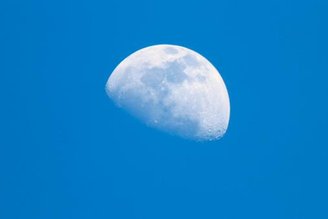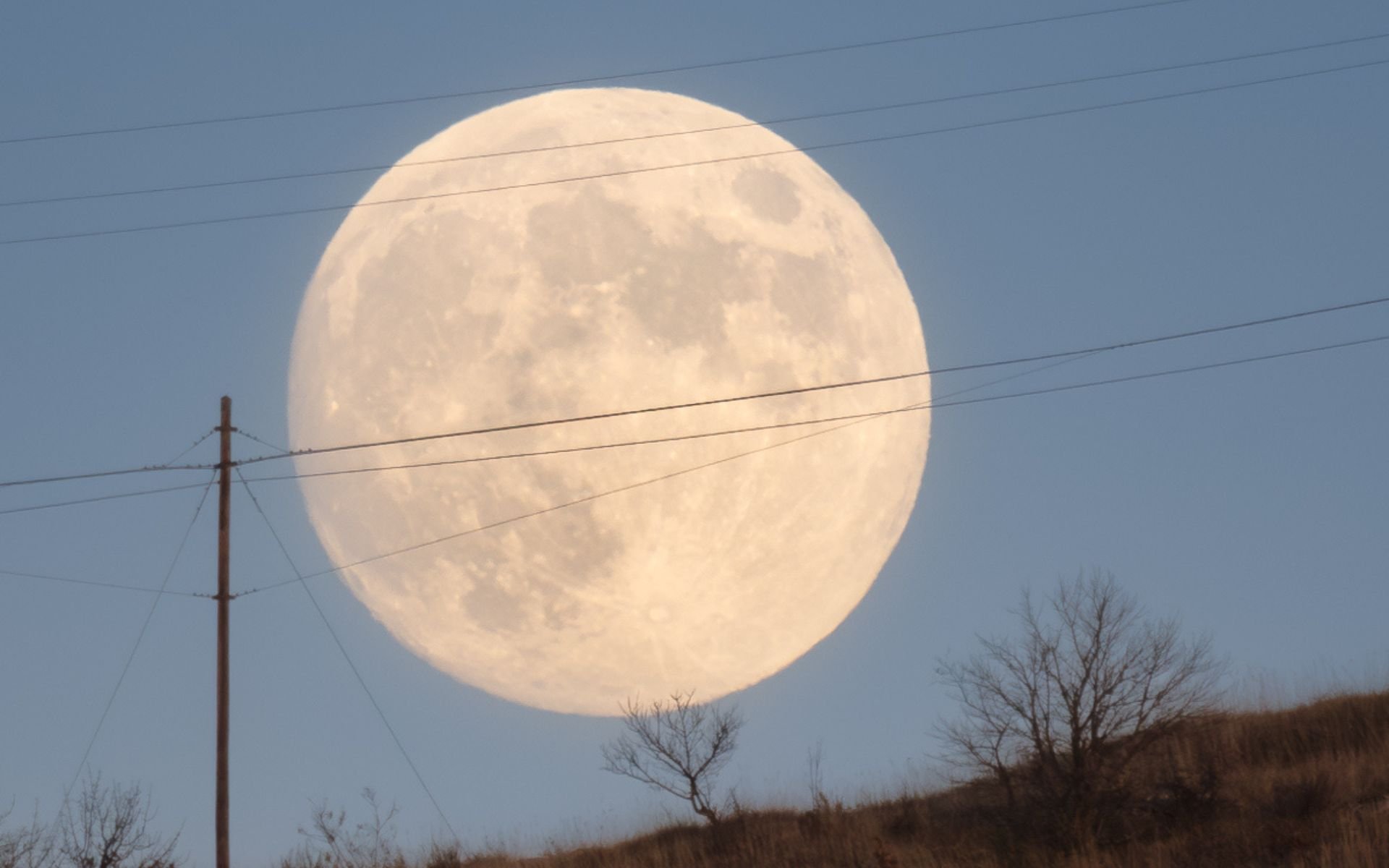Throughout the lunar cycle, The moon goes through different phases, including new, waxing, waning, and full moon. Depending on this cycle, the cosmic body can be observed from Earth differently, but always with its characteristic white-yellow glow. But only on one side, as a natural satellite operates with a phenomenon called synchronous rotation, which is why there is the “dark side of the moon.”
Observing the moon in the night sky is an ancient practice dating back to the beginnings of humanity. This phenomenon is so great that many religions have developed myths about the moon to explain its presence in the universe. But not only at night does the natural moon dazzle people, including… Some wonder how the object could also be so bright and appear in the sky during the day.
Some time ago, a conspiracy theorist named Stew Peters began wondering how the moon appears during the day. The question made other netizens think about the issue; They believe that it is not a completely natural phenomenon and that the moon's brightness during the day can only be due to something “artificial”. Fortunately, they are wrong.
“I noticed this a few years ago. I walk 3 times a day and I always see the moon on one side and the sun on the other in the morning and until the end of the morning. Something very artificial is happening here “The sun is white now, not yellow like it was when we were children. The moon shines like a lantern, it doesn't look real. We should definitely wonder what is happening to our skies,” posted one follower of the conspiracy theory on Twitter. X (formerly Twitter).
To better explain why we see the moon during the day, TecMundo collected information from scientists and experts in the field. paying off!
Why can we see the moon during the day?
The simple explanation for why we can't see the moon, planets, and stars with the naked eye during the day is that the sky is brighter because of the sun, but the truth is is that a natural satellite can actually be observed within a few hours of the daytime sky, depending on the phase in which it is located.
The truth is that we cannot always observe the Moon during the day, but on some occasions we can see the normal Moon even with strong sunlight during the day, mainly due to the Earth's atmosphere and the orbital cycle of our planet. After all, if Earth didn't produce any kind of atmosphere, the bright Moon would be visible all the time.

Gas molecules in the atmosphere cause our skies to appear blue and purple during the day, so for the Moon to be observable it must be brighter than the scattered light from the Sun. For example, during the new moon, the moon will be between the sun and the Earth. any, The side of the Moon that is illuminated will face the other side of the planet; The light will continue to shine in the sky, but it will be reflected to the other side of where we are.
To get a better view of the moon during the daytime sky, two very important points are necessary. First, the brightness of the cosmic object must be strong enough to penetrate the blue sky in scattered sunlight, and second, the moon must be high enough to observe it.
Because the Earth rotates all the time, the Moon stays above the planet's horizon for about 12 hours every full day. During some of these hours, up to six hours, the satellite remains visible in the daytime sky. However, because the sunlight is so strong on some occasions, the moon will not always be visible – but that does not mean it is not there.
“Let's think about why we can see the moon at night. Unlike our sun, the moon does not create its own light. We can only see it because sunlight reflects off its surface. The same thing happens during the day, and unlike stars, which still exist during the day but We can't see it because the sky is so bright. The moon is actually bright enough to see day or night, as long as it is in the sky. “The right part of the sky,” explains the US National Aeronautics and Space Administration (NASA).
When the moon is in the crescent or half-moon phase, observers can see it best during the day. This happens because during these periods, the Moon is farthest from the Sun and in a specific position, about 90 degrees away from the star.
The best time to observe the Moon during the day is around the first to fourth waning period, when it is also 90 degrees from the Sun, and in fact the Moon is partially visible during the day almost every day except at new moon and new moon. Full.
Did you like the content? So, stay up to date with all the curiosities about physics here at TecMundo. If you wish, take the opportunity to understand how a day would last 65 hours if the Sun did not affect the Earth's rotation.

“Wannabe internet buff. Future teen idol. Hardcore zombie guru. Gamer. Avid creator. Entrepreneur. Bacon ninja.”

